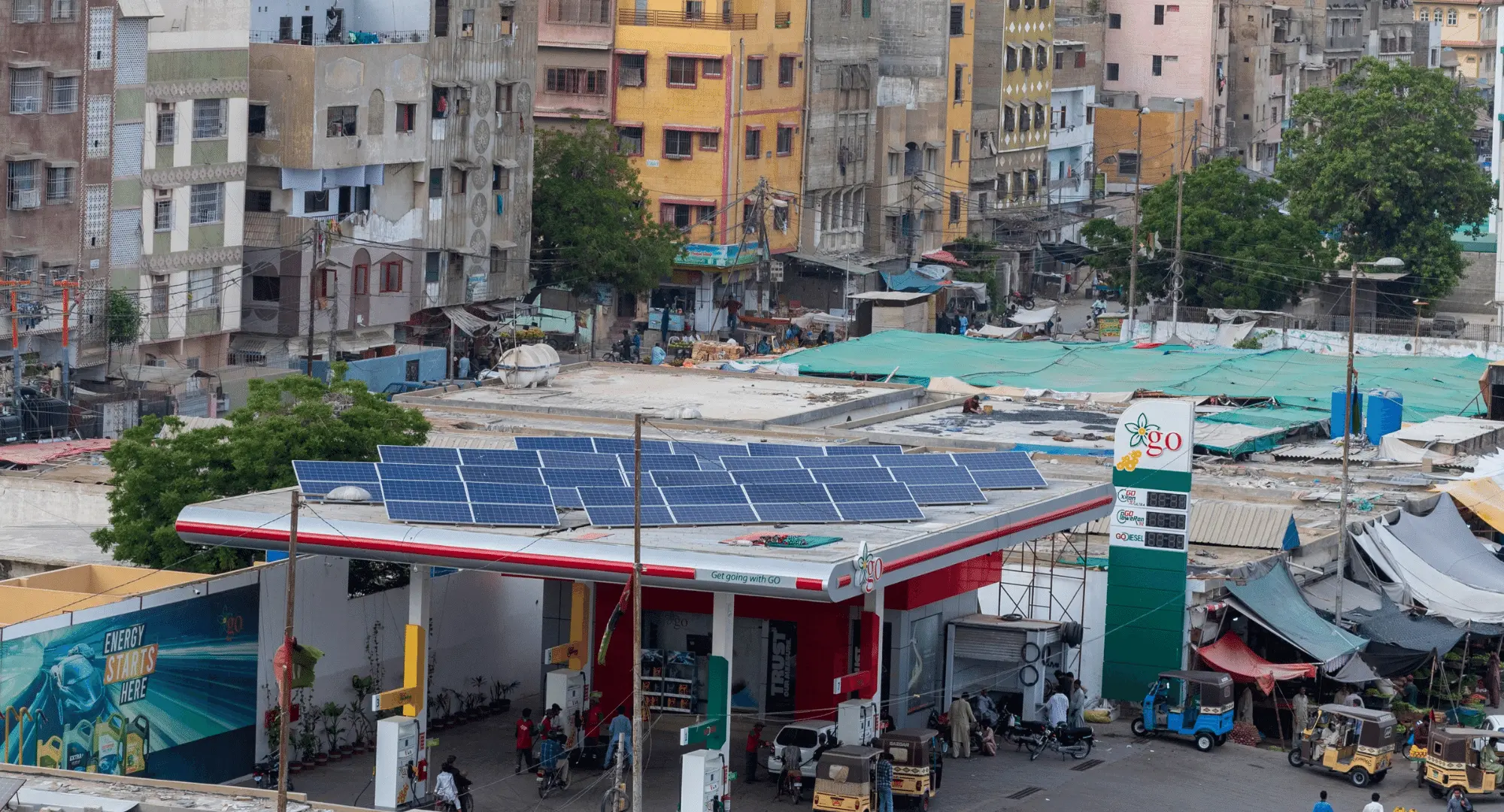The economic condition of Pakistan is devastated, and every year, the government tends to add extra tariffs on electricity consumption to manage the fiscal deficit. The recent increase of more than 7 rupees per unit is a clear indication of this situation.
Pakistan produces over 60% of its total power using fossil fuels, such as gas and furnace oil. In the fiscal year 2021-22, the government paid nearly 95 billion rupees per month to purchase gas and furnace oil for electricity production. Such substantial expenditures on importing fossil fuels significantly impact the country’s overall economy. Consequently, the common man faces inflation in the form of higher electricity bills and increased prices for essential items.
Table of Contents
- How is Solar Energy the Best Solution for Pakistan?
- Abundant sunshine
- Shield Against Inflation
- Easy Accessibility
- More Job Creation
- Solar Panels Are Affordable
- Environment Friendly
- Reduced Reliance on Imported Components for Electricity Production
- Challenges in Transitioning to Solar Energy in Pakistan
- Solar Energy in Pakistan and the Role of Alpha Solar
On the contrary, Pakistan possesses significant potential for renewable energy sources, particularly solar energy. According to World Bank reports, only 0.071% of Pakistan’s total area is sufficient to fulfill the entire country’s electricity demand if solar systems are installed. Presently, Pakistan is generating slightly over 2000 MW of electricity from solar energy, and it is projected that this capacity will increase to around 10000 MW by 2030.

In this blog, we will highlight the prominent reasons that strengthen our question: Why is solar energy the best solution for Pakistan?
How is Solar Energy the Best Solution for Pakistan?
From nearly every aspect, solar energy is the best available solution for Pakistan to overcome electricity outages and achieve higher generation rates. However, to truly make it a viable solution for the country, the government still needs to formulate policies that encourage not only local but also foreign investors to invest in the solar industry. Let’s explore how and why solar energy is the optimal solution for Pakistan.
Abundant sunshine
Sunshine serves as the fuel for solar panels, and the interesting aspect is that this fuel comes at no cost and is inexhaustible. A nation bestowed with ample sunshine hours, like Pakistan, has a greater potential for generating electricity through solar energy. On average, Pakistan receives 7-8 hours of sunlight per day, a resource sufficient for producing the necessary electricity at the most economical rates. The key lies in the installation of a higher number of solar projects.
Shield Against Inflation
Solar panels only cost you once, unlike fossil fuels which continually rise in price and result in higher electricity rates. In Pakistan, electricity rates directly influence the prices of other essential items, as production facilities rely on electricity. When production facilities switch to solar energy, they no longer need to worry about power outages, the additional cost of generator fuel, and higher monthly tariff rates. solar energy plants also allow for better control over a portion of the overall installation costs.
Easy Accessibility
Not every business can build its own power plant using coal or fossil fuels, but solar energy is more accessible, and anyone can easily access it by installing solar panels on their rooftop. Solar installations don’t demand significant equipment for setup. The government should prioritize solar energy plants due to their ease of establishment compared to dams. Moreover, there are no restrictions preventing homeowners from having their own power plant on their rooftops.
More Job Creation
Pakistan ranks lowest in job creation due to insufficient local and international investment across various sectors. However, solar energy has the potential to generate numerous job opportunities for the younger generation. With the establishment of more power plants in Pakistan for manufacturing solar system components, a surge in job openings can be anticipated. The increased demand for solar system installers, designers, salespersons, and other related roles will contribute positively to the economy as a whole.
Solar Panels Are Affordable
Solar panels are becoming increasingly affordable with each passing day. In Pakistan, an average household can install a solar system for their home for just 5 to 6 lakh rupees. To further enhance affordability, the State Bank of Pakistan offers a solar financing scheme. Under this scheme, eligible applicants can obtain financing from relevant banks for solar systems ranging from 1 kW to 100 kW.
Environment Friendly
Despite a relatively low total carbon emission, Pakistan is dealing with serious climate change and global warming. The recent floods that affected nearly 70 percent of the country’s area serve as a stark reminder of the adverse impact of climate change on Pakistan. Fossil fuels are a significant contributor to this ongoing crisis. Given the current dire situation, Pakistan must shift towards renewable energy solutions to mitigate the effects of climate change. This transition is crucial to prevent future climate-related disasters.
The most effective approach is to reduce fossil fuel consumption, a goal that can be achieved through the transition to solar energy. By embracing solar energy, Pakistan can pave the way for a cleaner and more sustainable energy future, ultimately minimizing its vulnerability to the adverse effects of climate change.
Reduced Reliance on Imported Components for Electricity Production
With over 60 percent of our electricity production relying on gas, furnace oil, or coal, a significant portion of these resources is imported from various countries at higher rates. This further increase the overall trade deficit. On the other hand, a solar energy system drastically reduces dependence on imports, as solar panels need no fuel to generate electricity. The only imports would consist of certain components, which could potentially be domestically manufactured if the government implements policies to facilitate the ease of doing business within the solar industry.
Challenges in Transitioning to Solar Energy in Pakistan
Pakistan has the advantageous opportunity to generate ample electricity using solar energy. Despite being aware of this fact, we still struggle to produce a sufficient amount of electricity from renewable sources. There are multiple factors that have been hindering the transition to solar energy in Pakistan. Let’s examine them one by one.
Lack of Infrastructure and Limited Access to Investment
The country holds significant potential for solar energy, but there is a lack of basic physical infrastructure and essential facilities necessary for the advancement of solar energy within the country. Another factor is the challenge of attracting both domestic and foreign investment in the solar industry in Pakistan. Additionally, the government shows reluctance to allocate sufficient funds to solar energy due to various reasons.
Lack of Government Support
The government of Pakistan has not yet provided the same level of support for solar energy as it has for other renewable energy sources, such as hydroelectricity. This can make it difficult for solar companies to get financing and permits.
Technical Barriers
Another challenge is the technical barriers that need to be overcome for Pakistan to transition to solar energy. Technical obstacles include the efficiency of solar panels, which can be affected by shading and varying sunshine hours in different locations. Additionally, there is a shortage of skilled labor; many people lack the knowledge to properly install solar panels, resulting in less efficient solar systems. Inadequate regulations also play a role in hindering the transition to solar energy in Pakistan.
Political Instability
Pakistan has been experiencing political instability since its inception. With each new government, policies crafted by predecessor governments either vanish or progress at a very slow pace. There hasn’t been a consistent and reliable policy regarding solar energy from any government, and this is the reason the country still generates less than 5% of its total electricity from renewable energy sources.
Solar Energy in Pakistan and the Role of Alpha Solar
With its array of benefits, opportunities, and challenges, Alpha Solar has experienced both good and bad times in Pakistan’s solar industry. Despite the industry’s fluctuations, the company remains committed to delivering high-quality solar panel systems at affordable prices. Alpha Solar has consistently embraced every government policy aimed at advancing solar energy in Pakistan. This dedication is evident through its recent alignment with the State Bank of Pakistan’s financing policy and its affiliations with all commercial banks in Pakistan.
Do you have any inquiry related to solar panel systems or need information about solar energy in Pakistan, Alpha Solar stands ready to assist. We provide complimentary quotations and offer free site surveys to facilitate a seamless transition to solar energy. Feel free to contact us at the provided number or visit our office for further information.


Leave A Comment